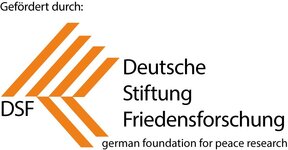Between Risk and Resistance: What’s New in the Long History of Russian Migrant Mobilisation?
Between Risk and Resistance: What’s New in the Long History of Russian Migrant Mobilisation?

The full-scale invasion of Ukraine in February 2022 triggered the largest wave of migration from Russia in decades. This presentation views this exodus in a broader historical perspective, tracing continuities with earlier waves of Russian migration, while also identifying what is genuinely new.
The post-2022 diaspora is very heterogeneous: While many migrants oppose the war, others left Russia for pragmatic reasons. Instead of a cohesive opposition in exile, we therefore have multiple publics. The migrants’ repertoire of action extends beyond traditional protest to include humanitarian aid, digital information activism, advocacy with host states, and community-building initiatives. Unlike the Belarusian diaspora, exiled Russian politicians have not acted as a unifying force. Transnational repression has become a defining feature: Intimidation of families, surveillance, and legal harassment have prompted some migrants to adopt ‘strategic non-engagement’ as a mode of participation. While host-country opportunity structures – migration regimes, civic space, and relations with local societies – have always shaped whether mobilisation flourishes or stalls, the new diaspora also encounters ambivalent responses from host publics. Interactions with other diasporas, especially Ukrainians, are characterised by both solidarity and tension.
Contemporary Russian migrant mobilisation is thus defined by an ongoing negotiation between risk and resistance. Though constrained by repression and fragmentation, it sustains transnational publics where democratic practices and alternative visions of Russia endure and adapt. The post-2022 mobilisation represents not a rupture but a new chapter in a long tradition of exile politics.
Participants
- Speaker: Joanna Fomina, Professor at the Institute of Philosophy and Sociology, Polish Academy of Sciences (Warsaw); Senior Research Fellow at the Helsinki Foundation for Human Rights (Finland); member of ERDAM.
-
Discussant: Bahar Baser, Professor of Politics and International Relations at Durham University’s School of Government and International Affairs and a member of the Institute for Middle Eastern and Islamic Studies.
-
Moderator: Tsypylma Darieva, Head of the Research Cluster ‘Migration and Diversity’ at the Centre for East European and International Studies (ZOiS) Berlin; Faculty Member at Humboldt University Berlin, member of and coordinator at ERDAM.

